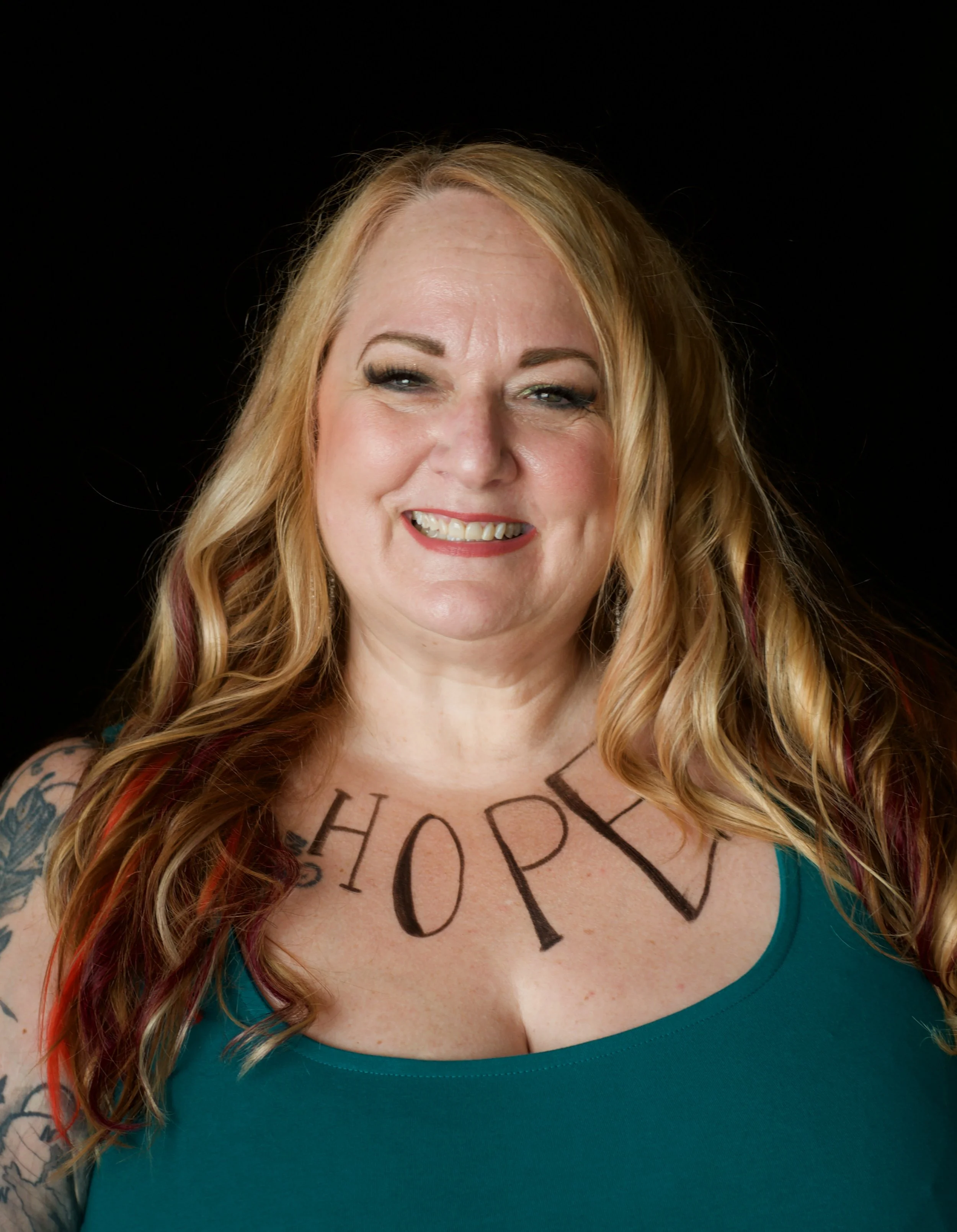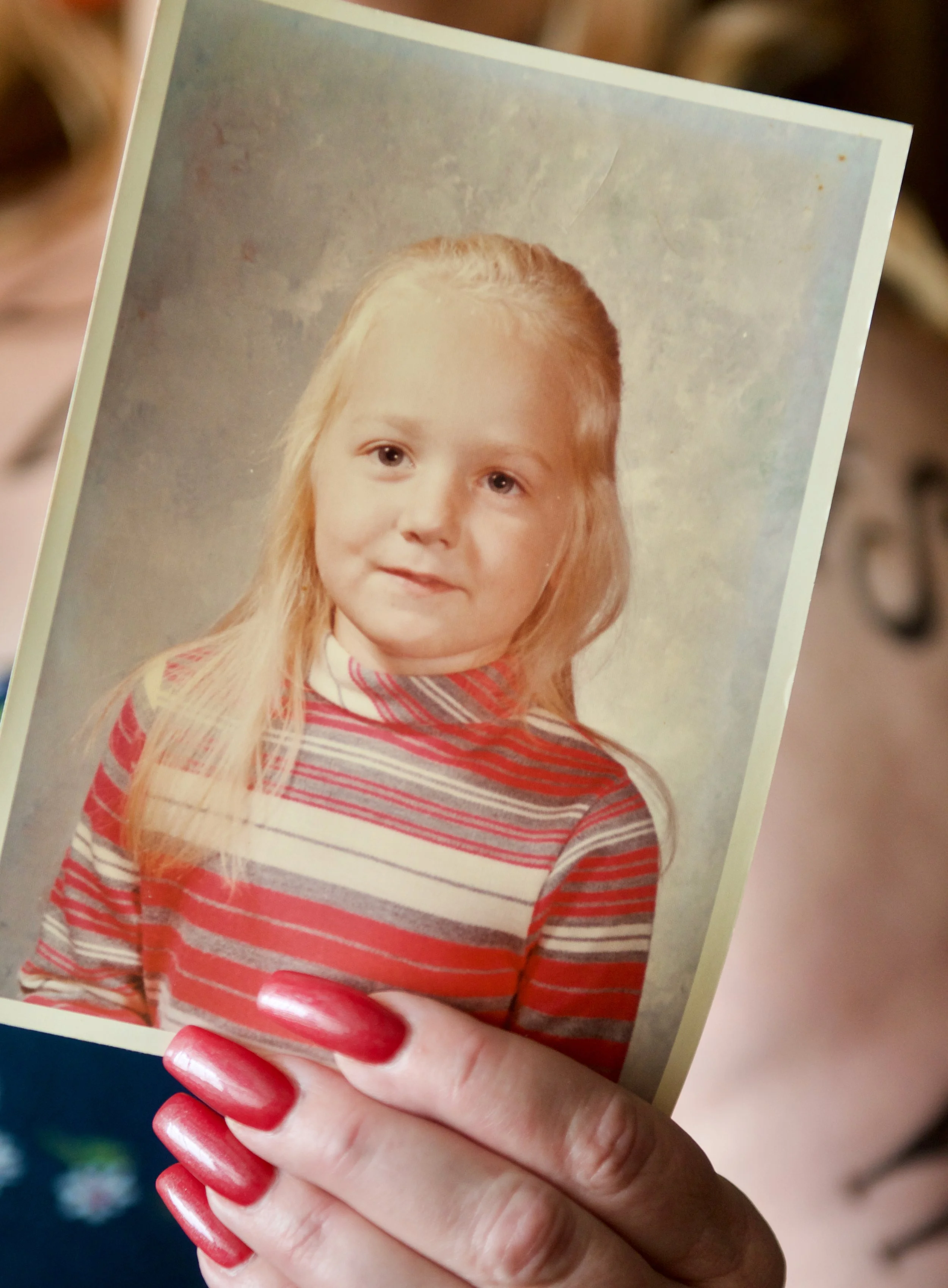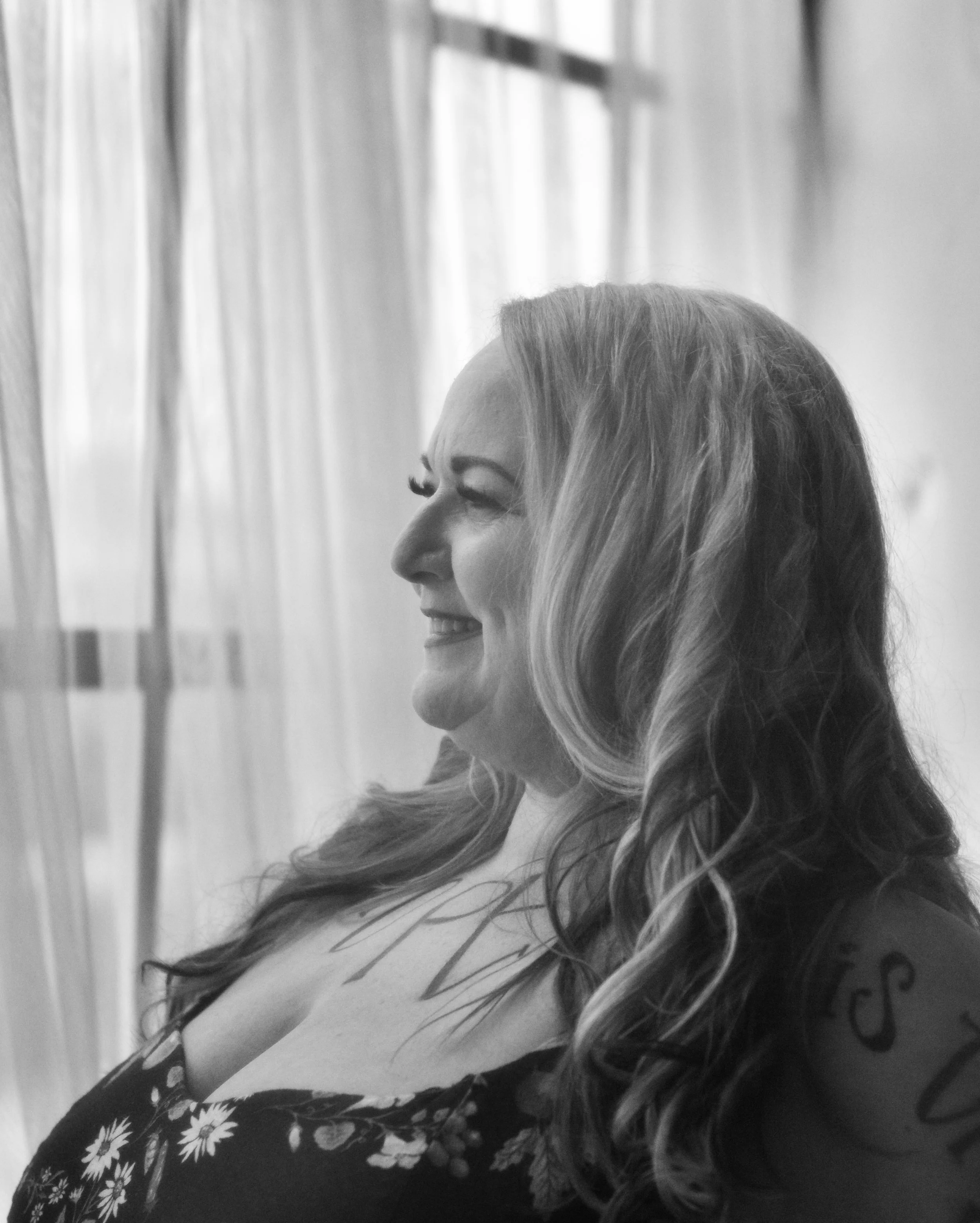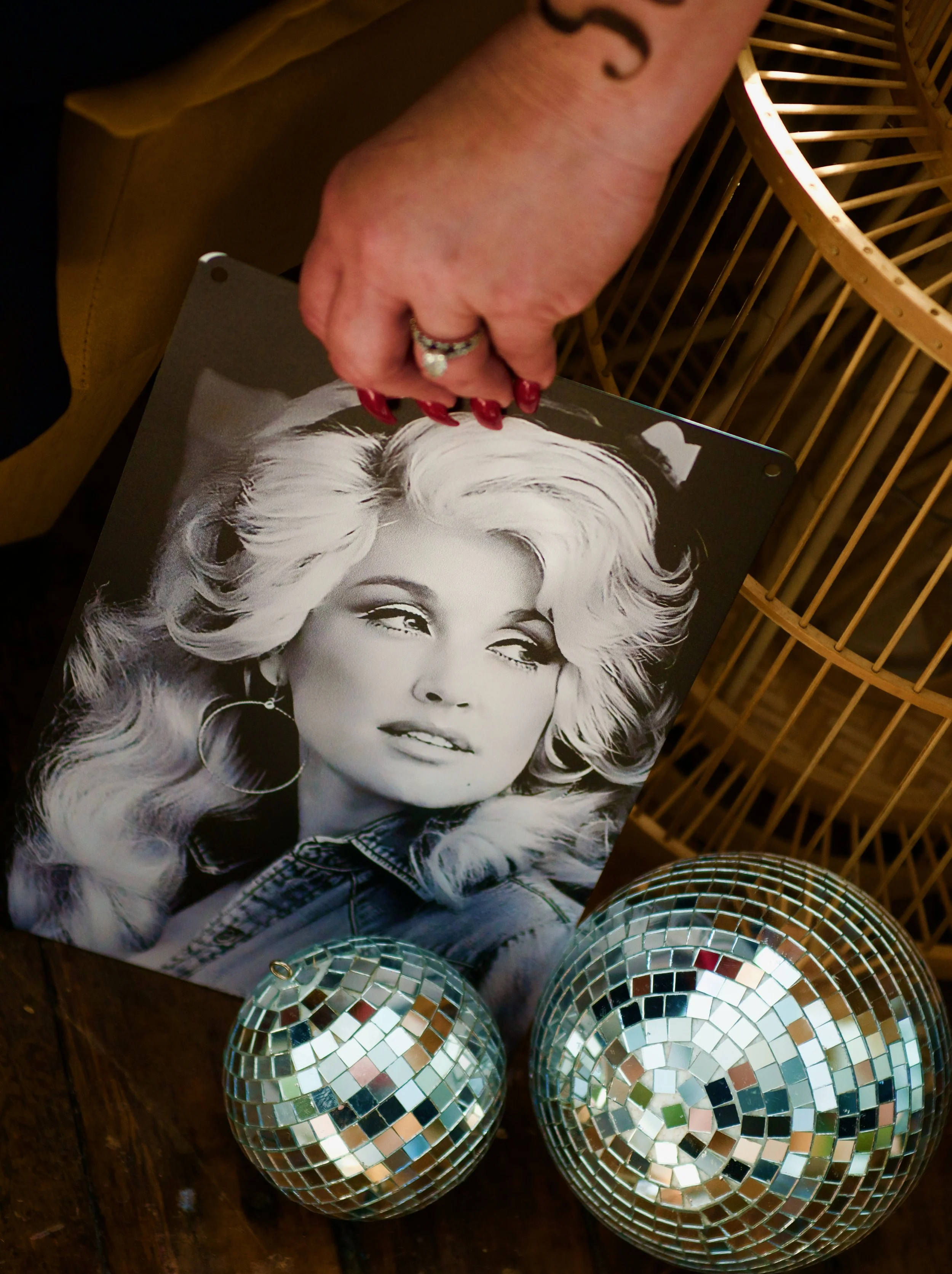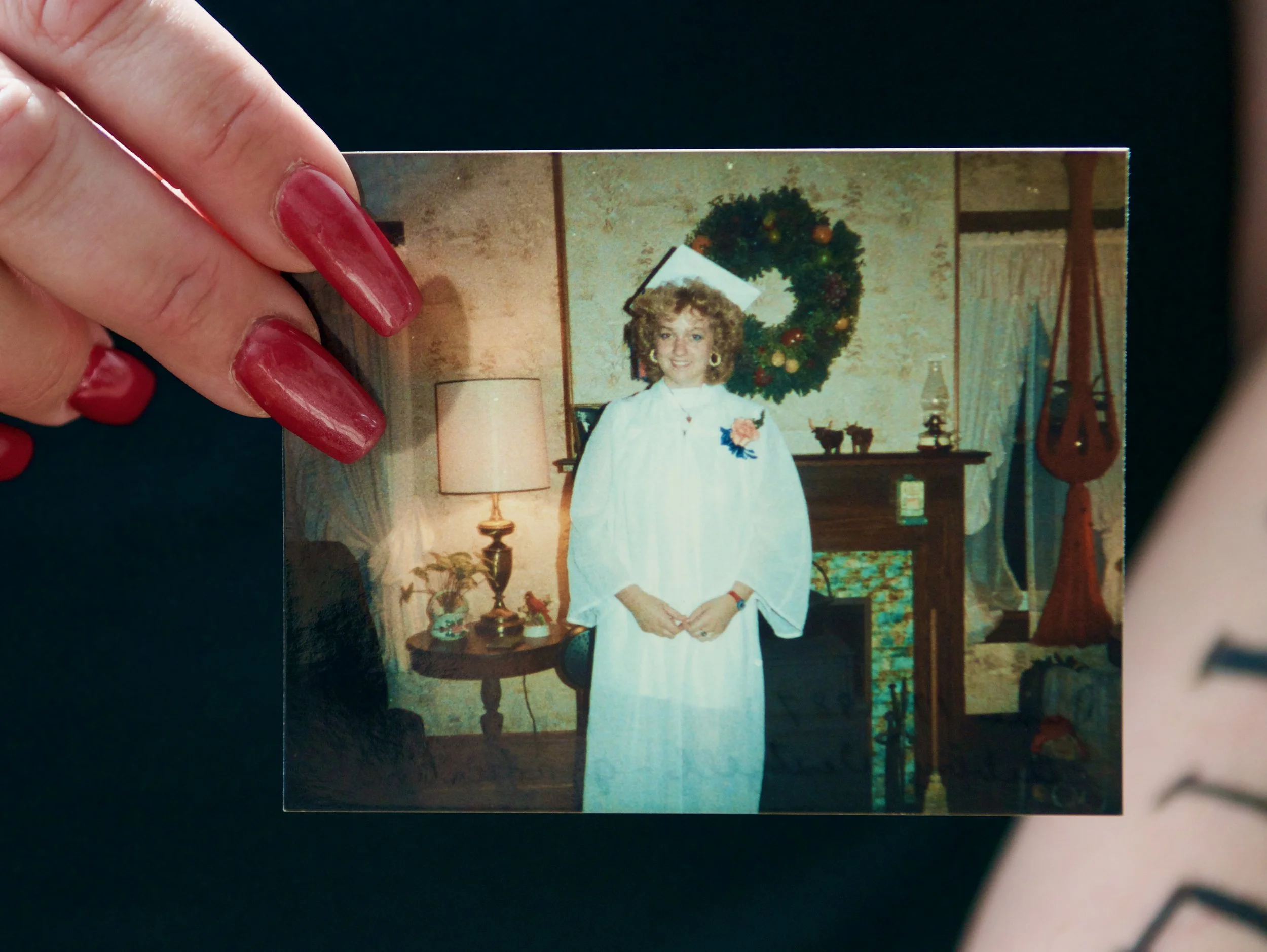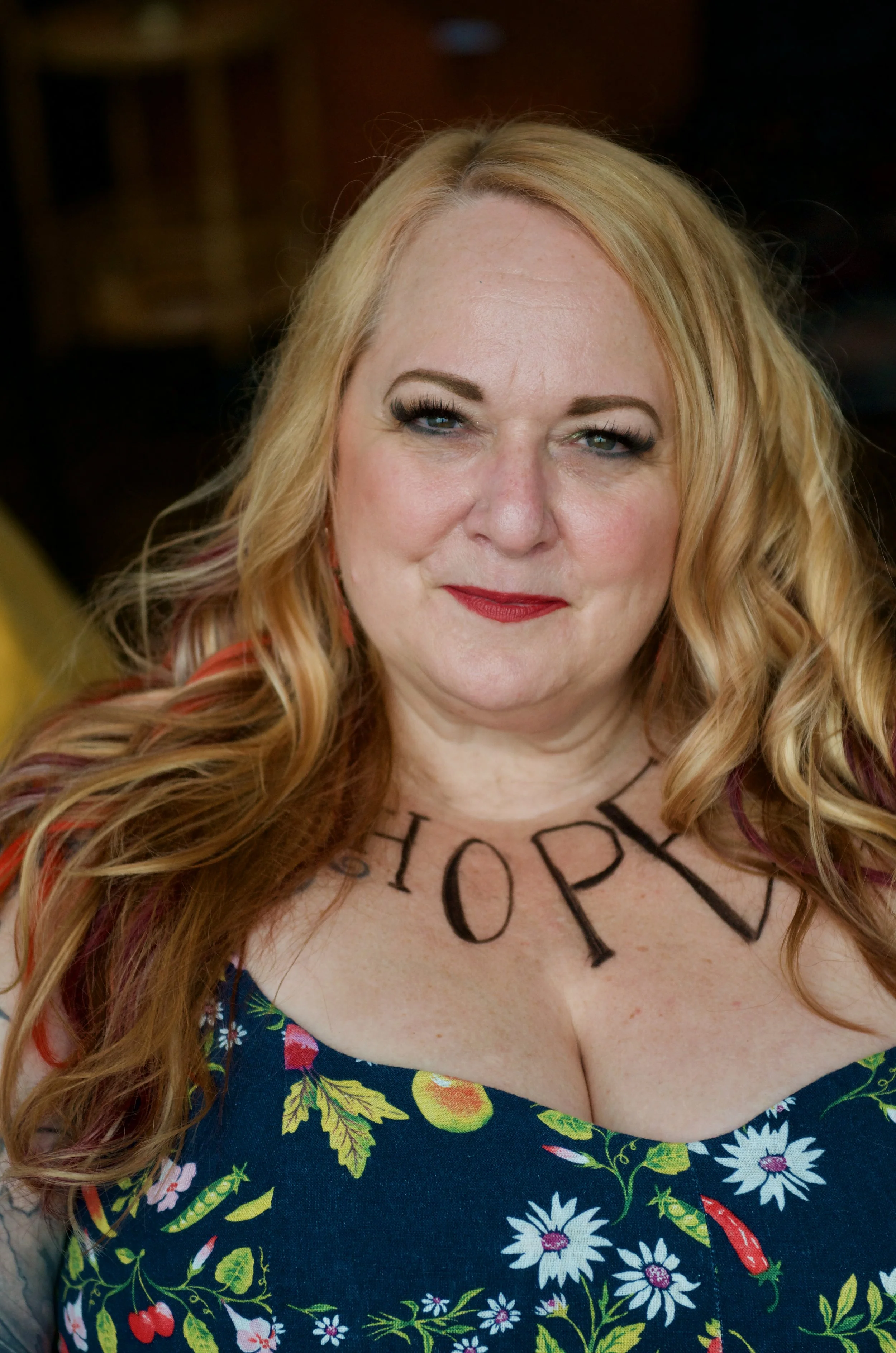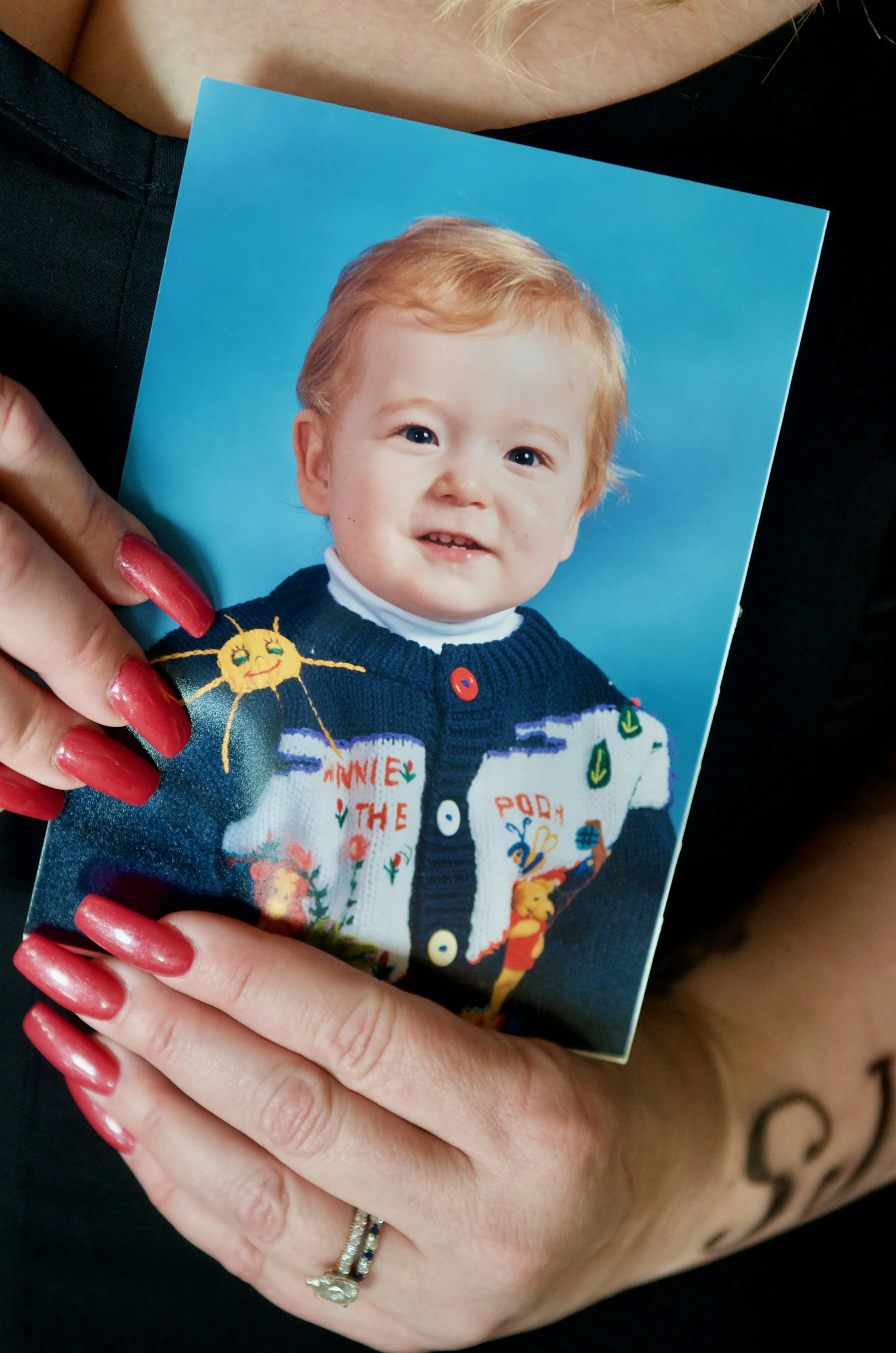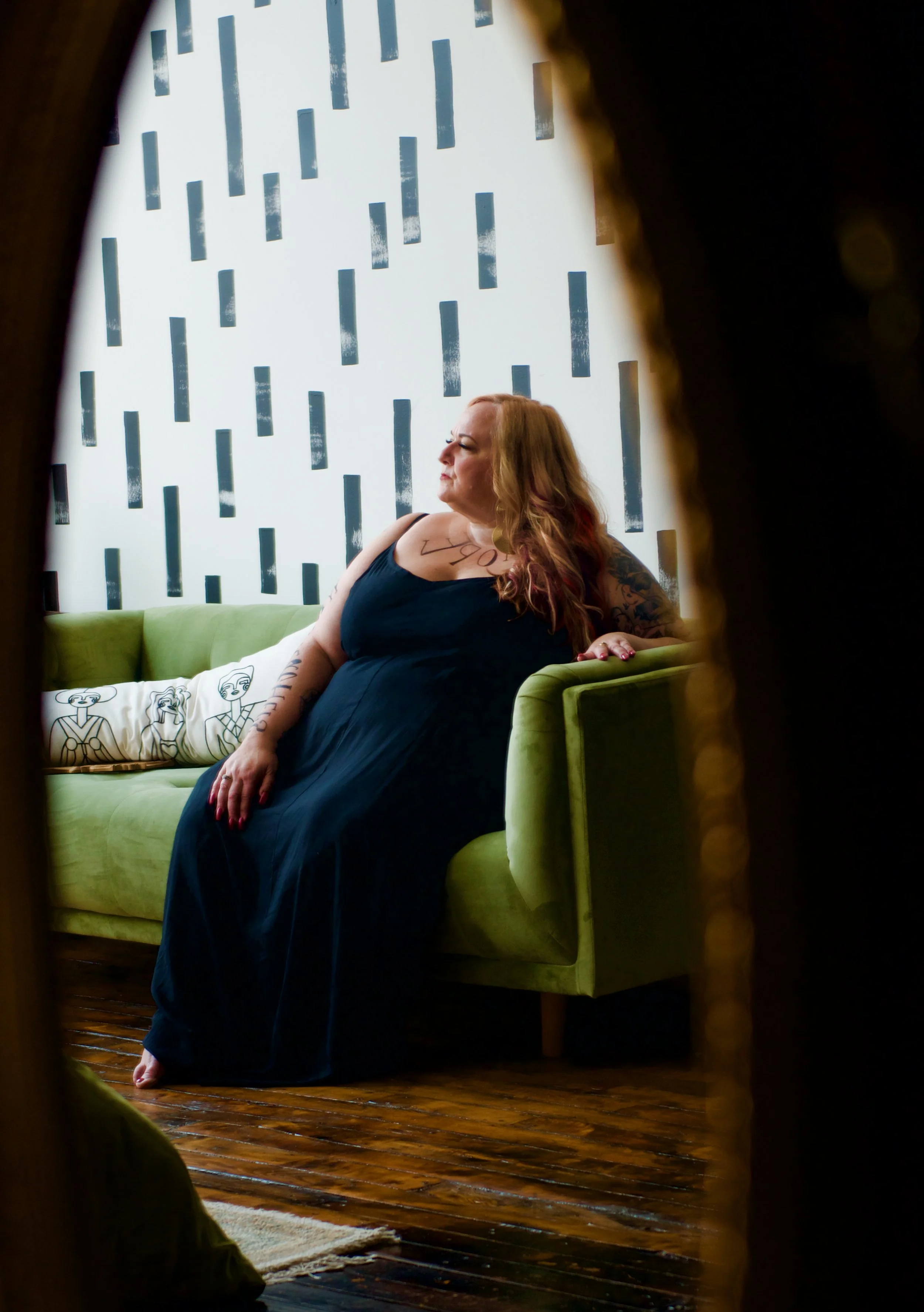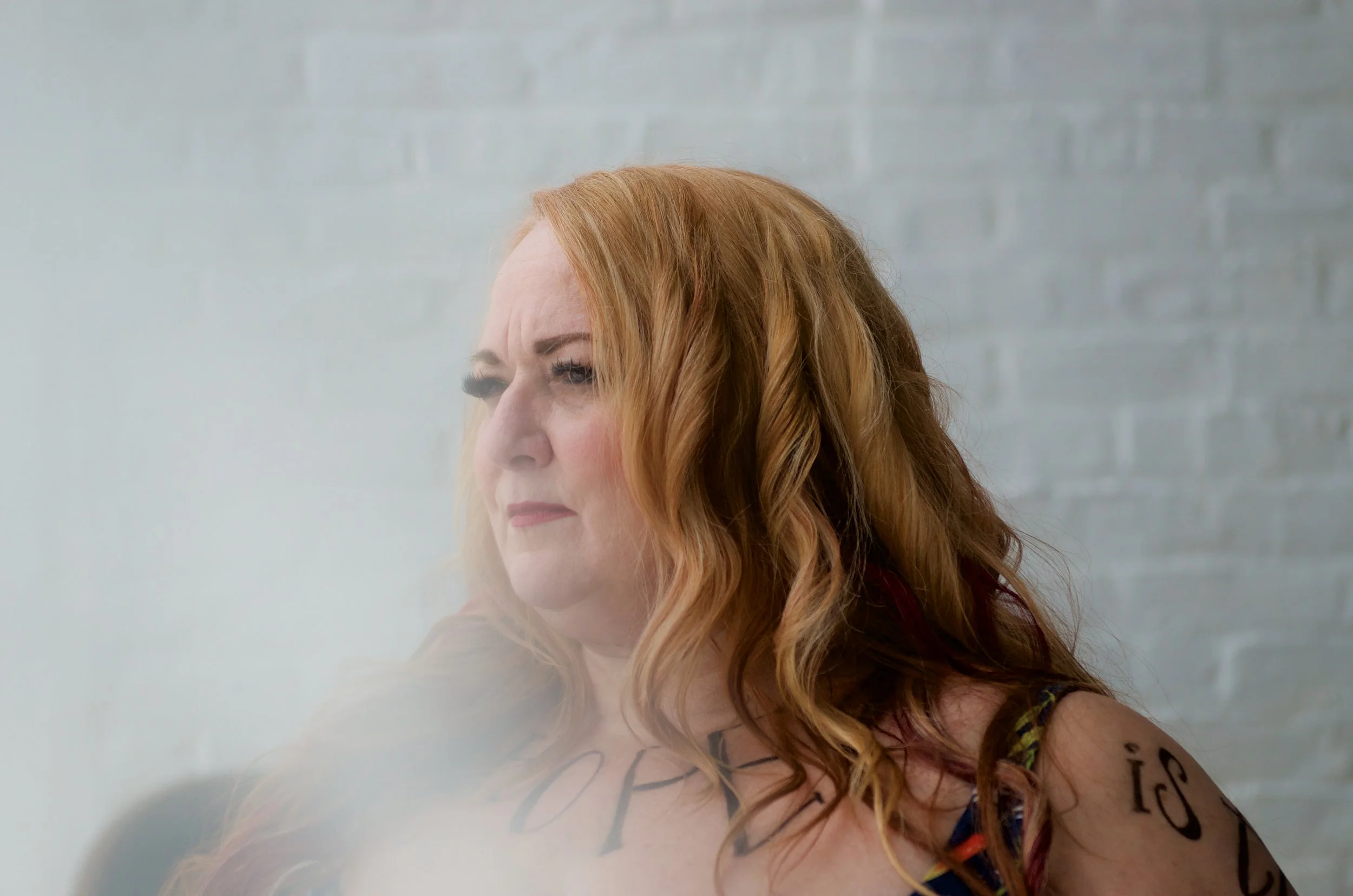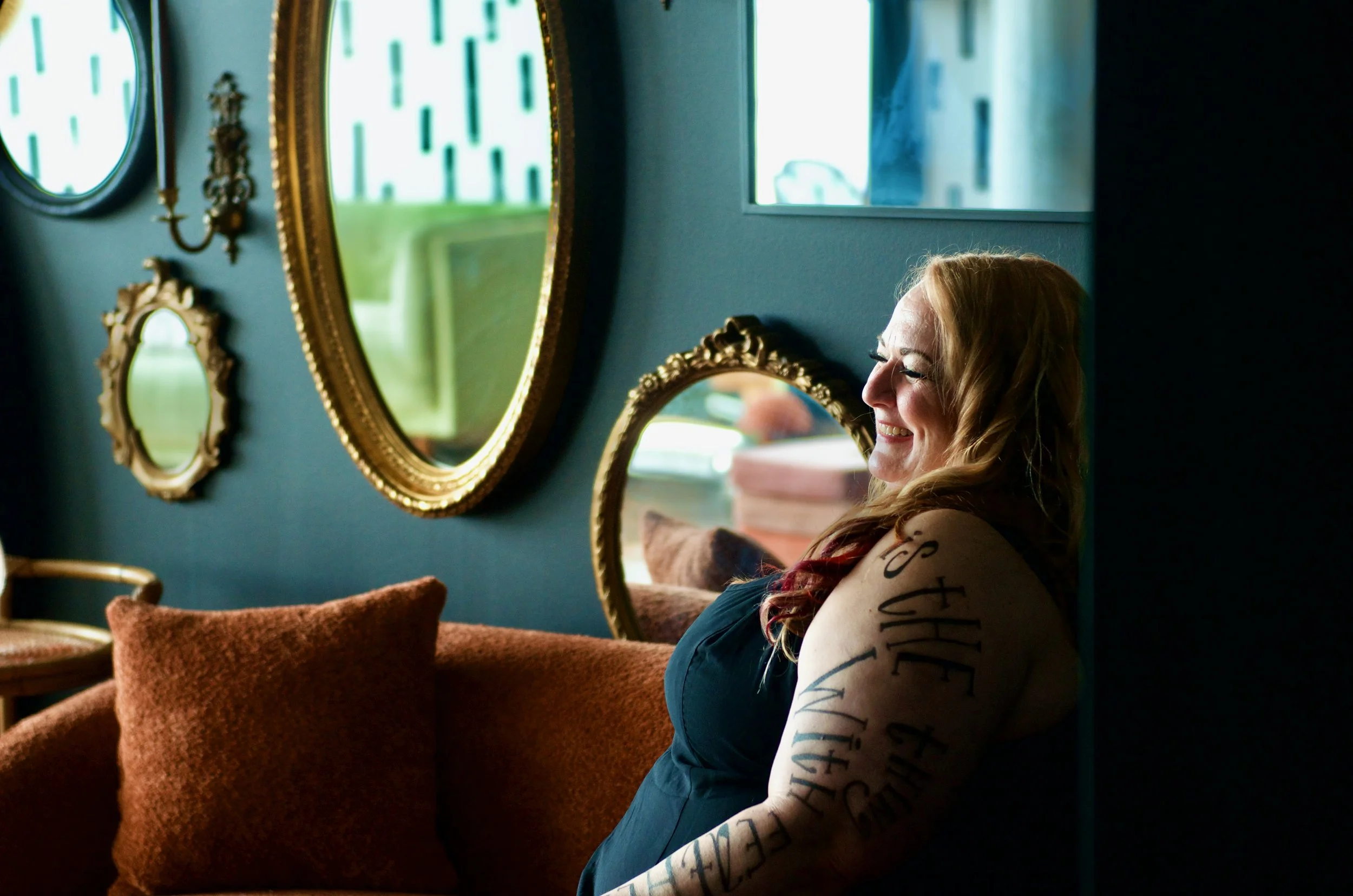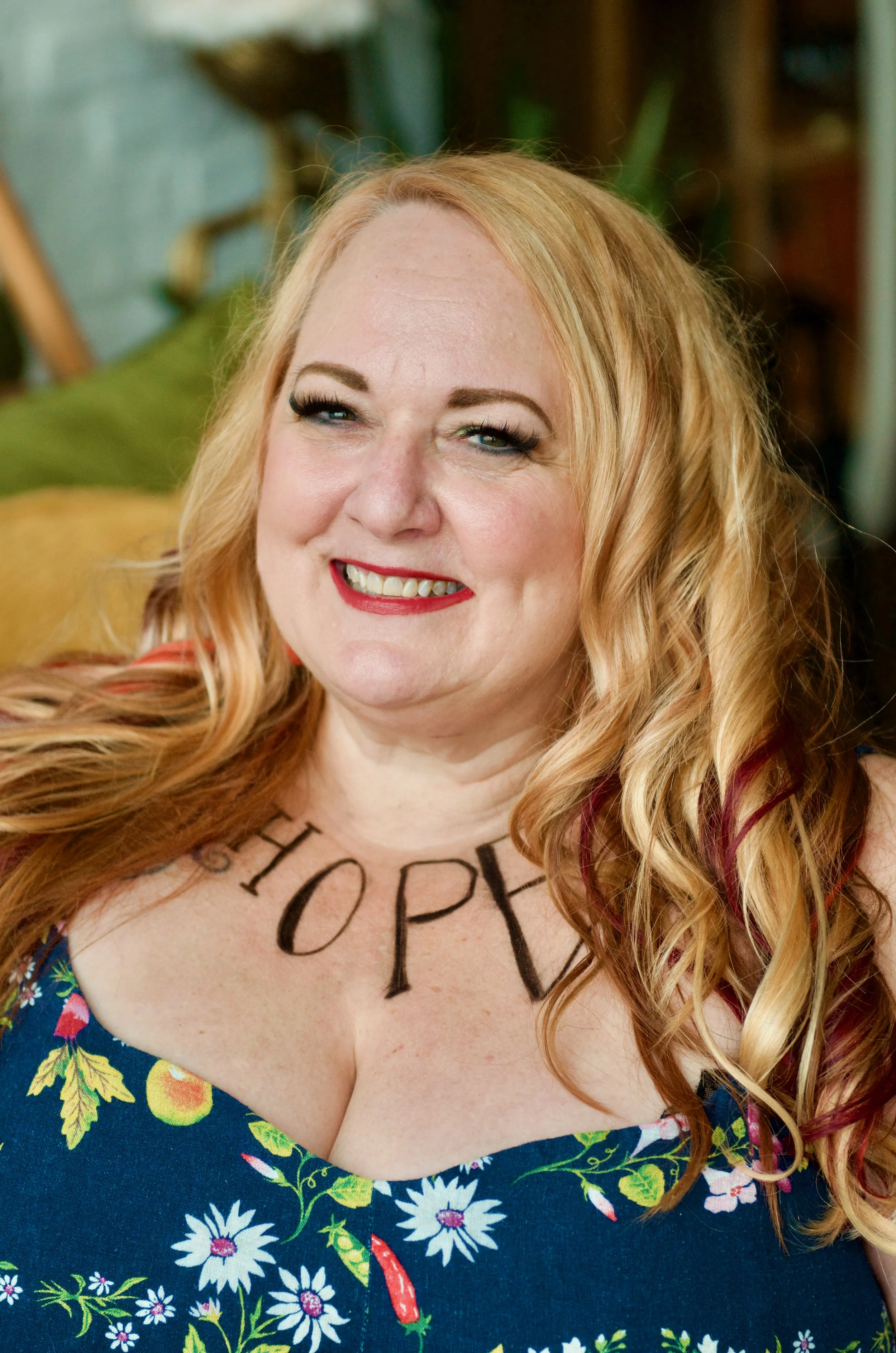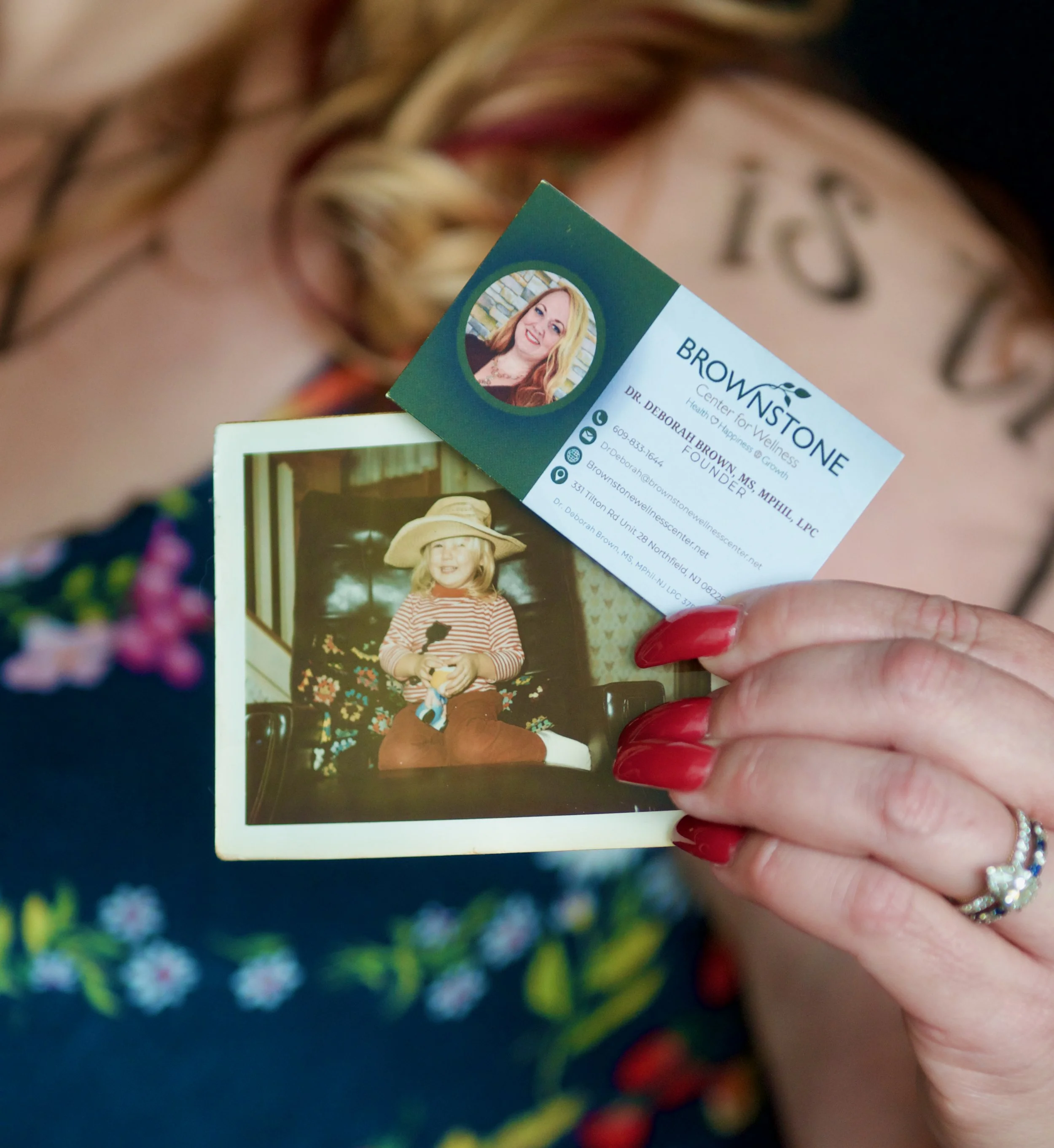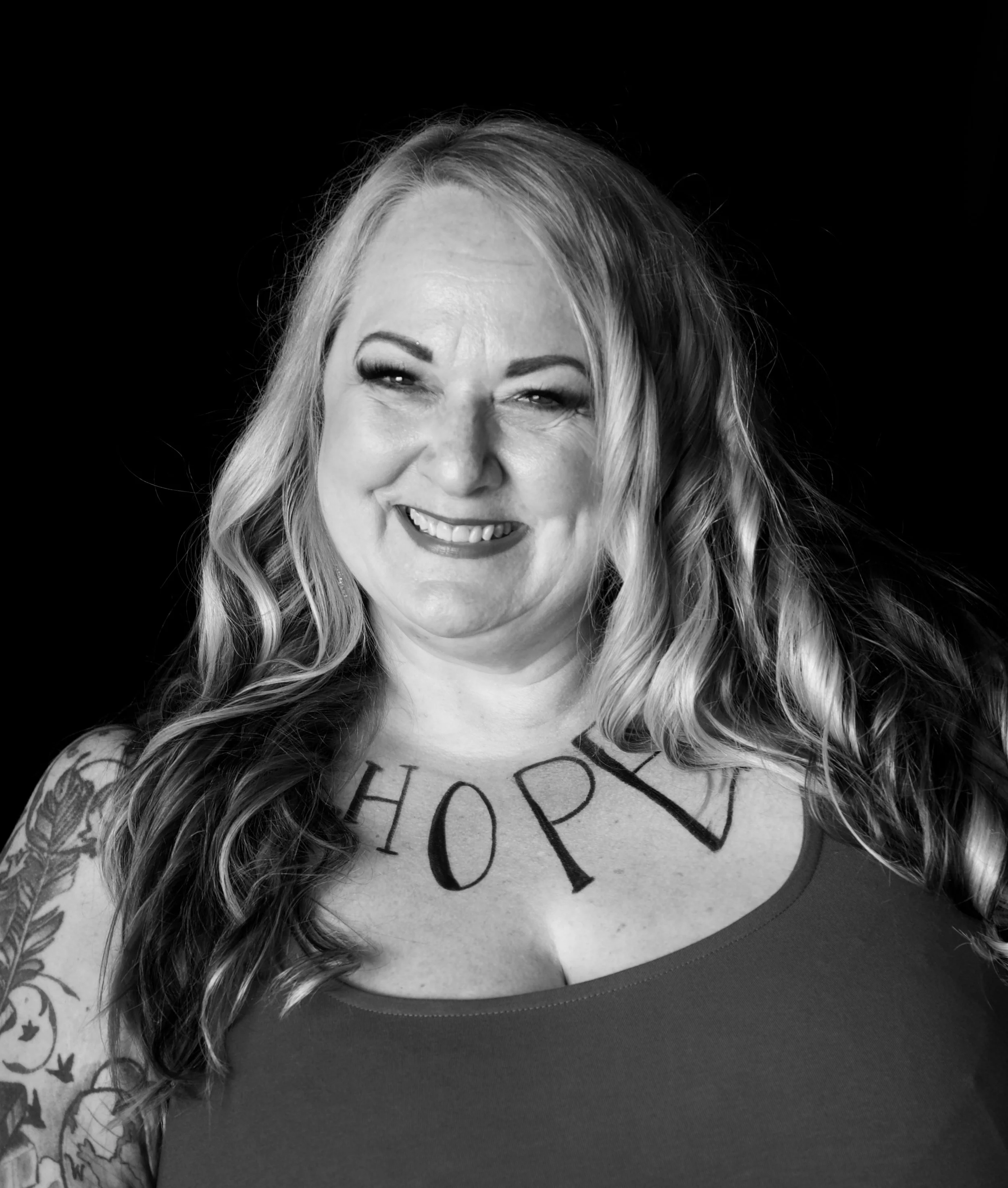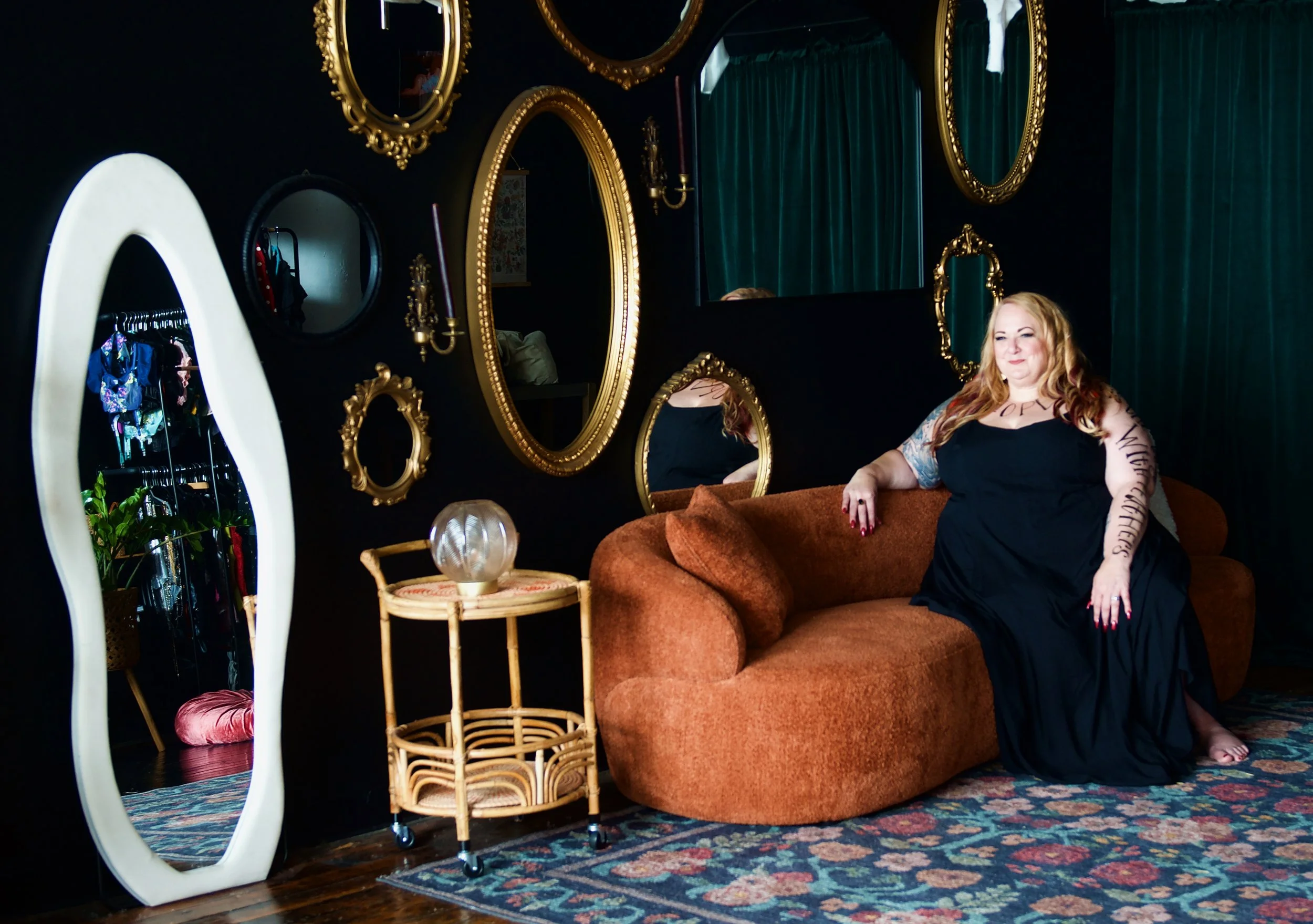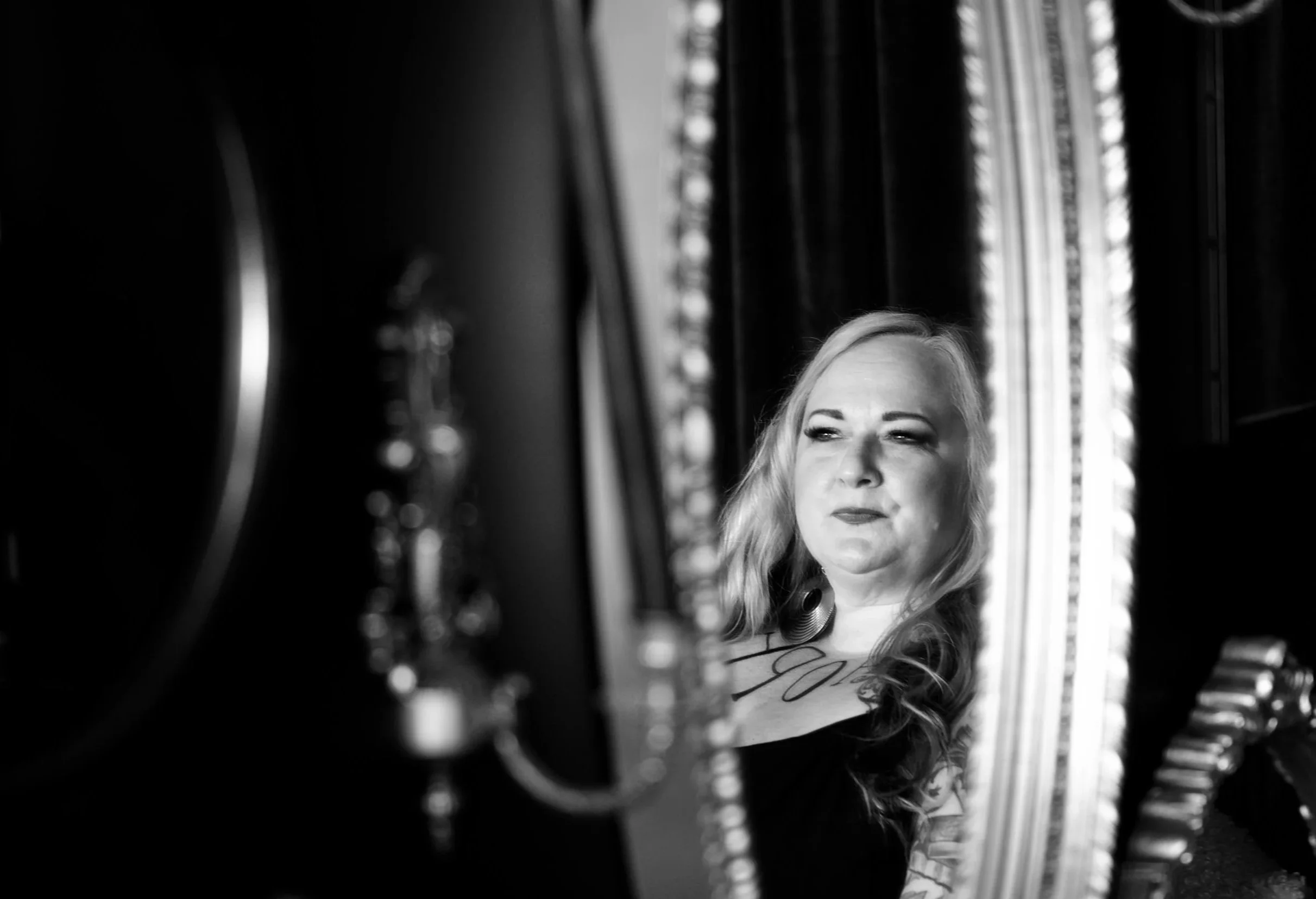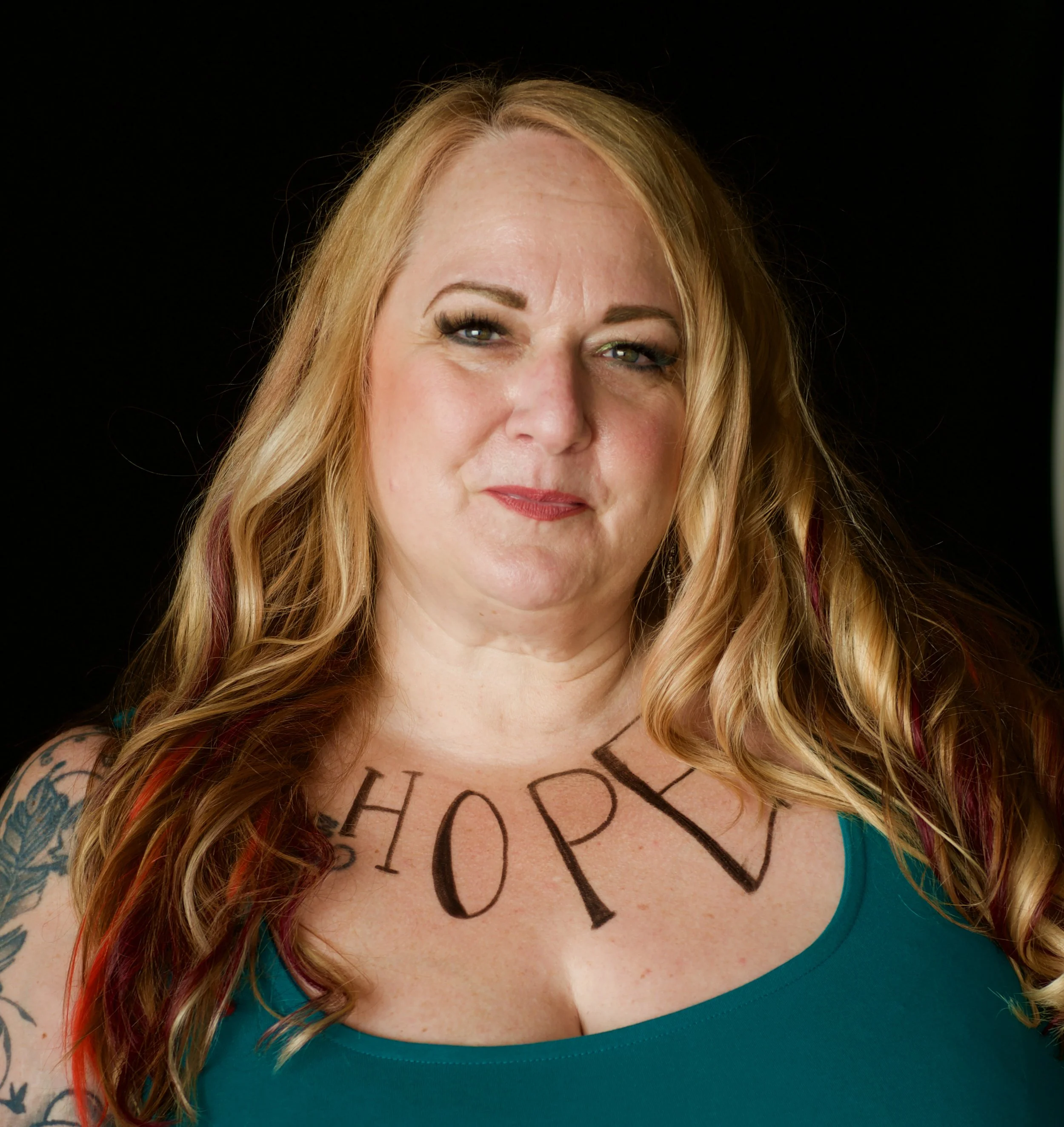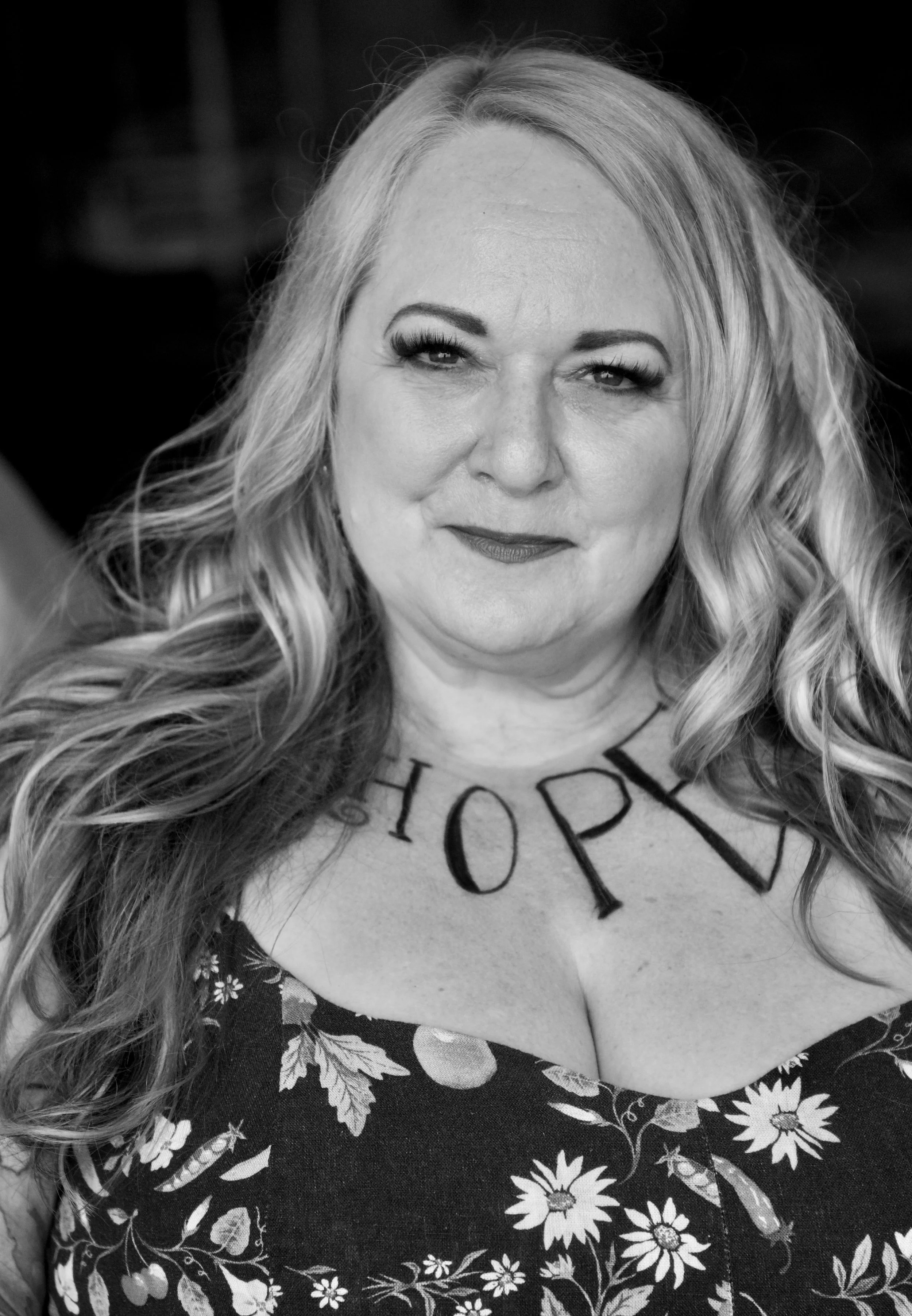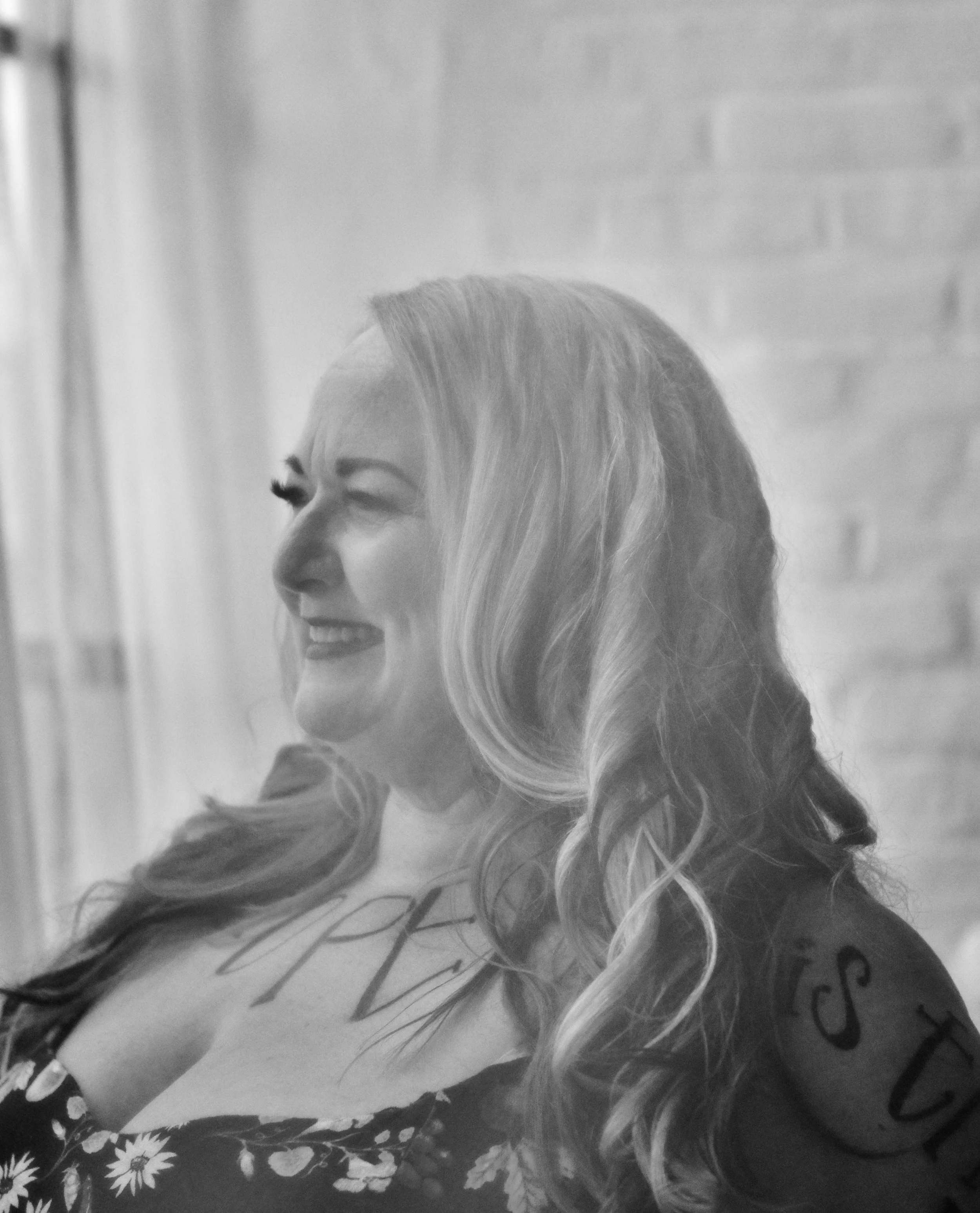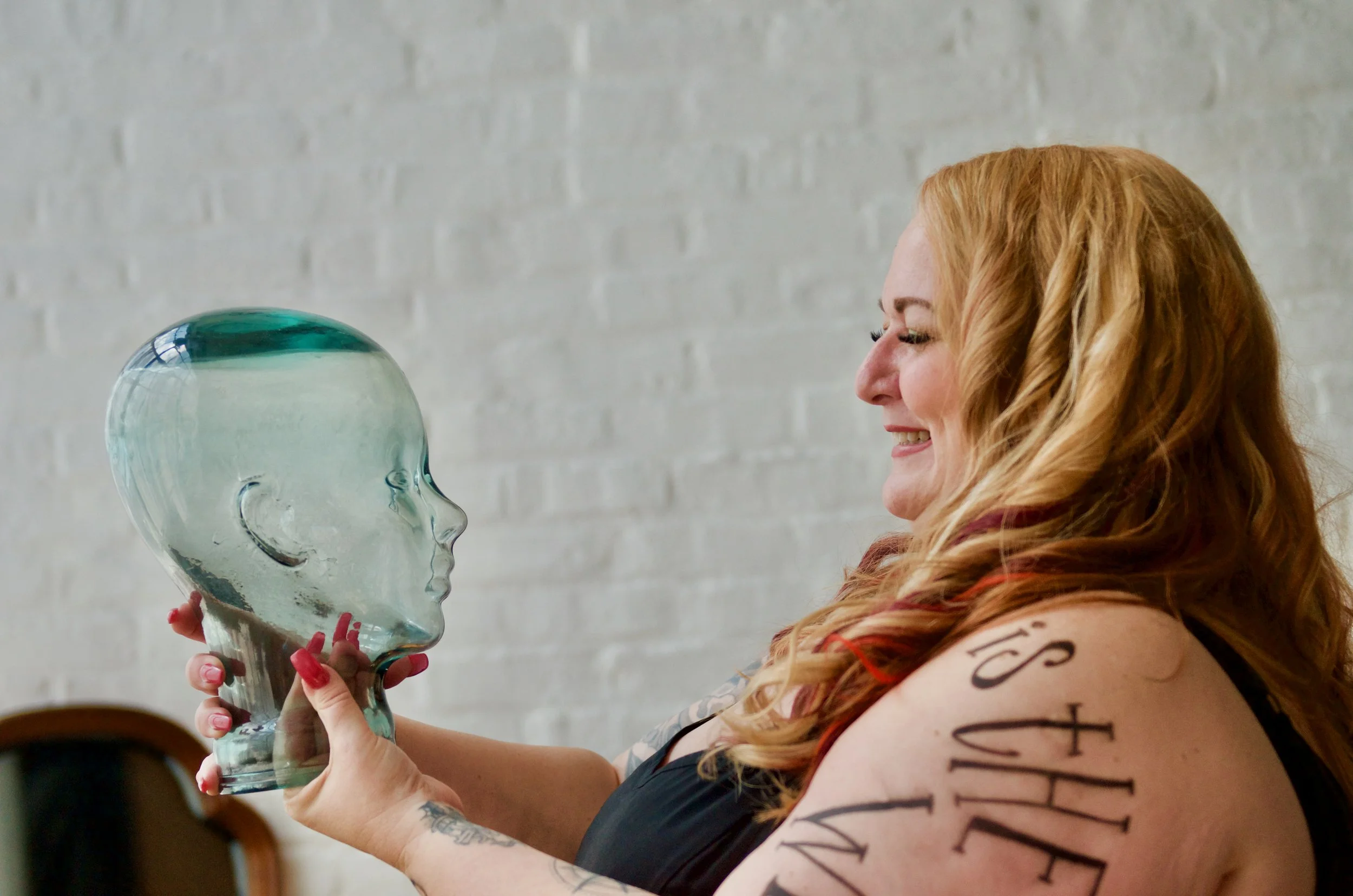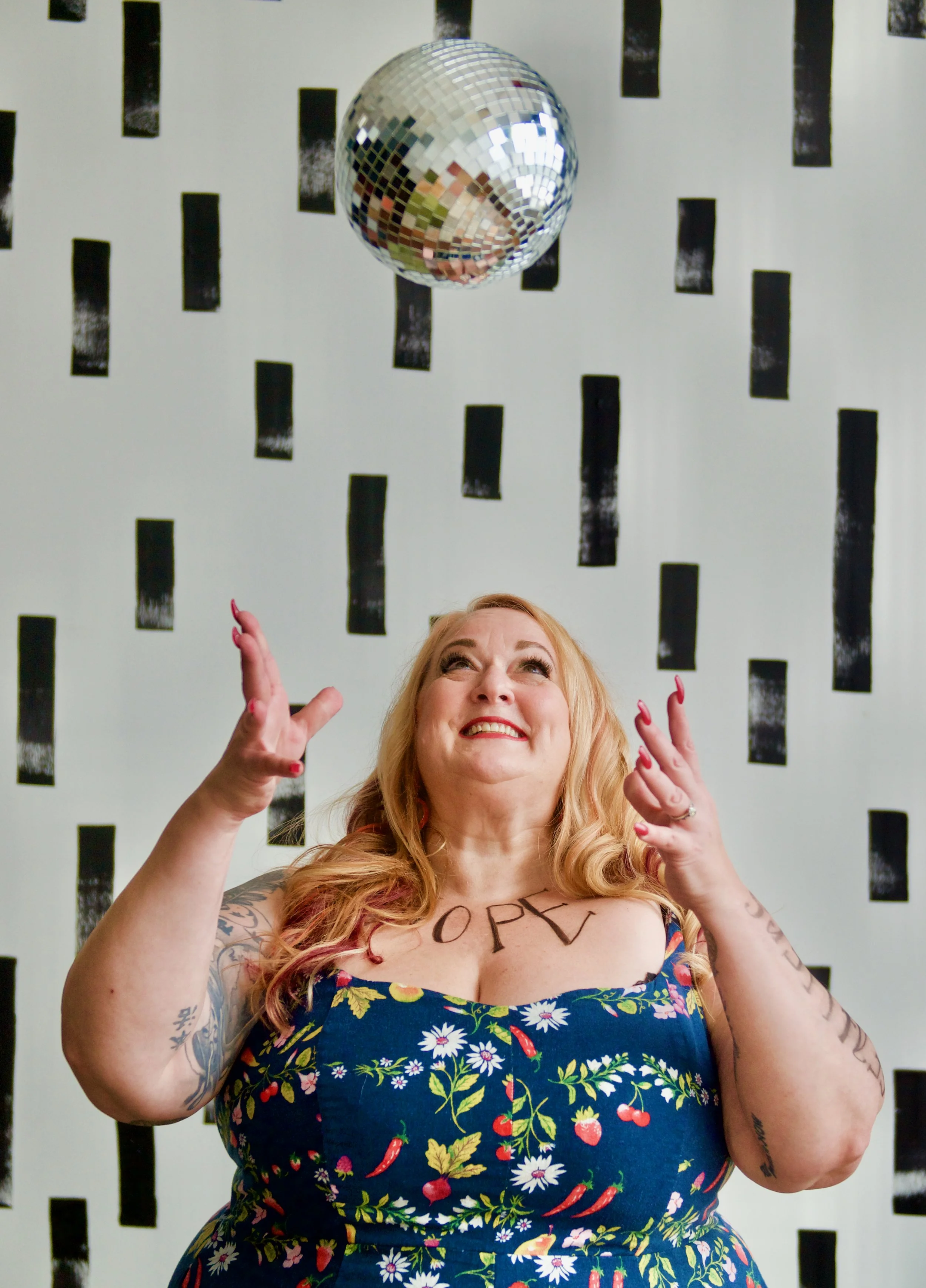Deborah
“Hope is the thing with feathers
That perches in the soul,
And sings the tune without the words
And never stops at all.”
-Emily DickinsonI am 55 years old, born in 1969, and while my mom was pregnant with me, it was the exciting time of Woodstock and a man walking on the moon. My parents were young when they got married and started having children; they had 5 of us, rapid-fire, before my mom was 28. My father was from generations of farmers, and on dairy farms, you have to milk cows twice a day, 7 days a week. Like many kids in our area, my sisters and brothers and I became the labor force that operated our farms. Picture a young child getting up every day before 5 am, milking dozens of cows, running home to share a bathtub with 5 kids, getting on the school bus, then coming home and milking cows again, in the cold, the heat, the rain, even when you are sick, and on birthdays and holidays.I learned quickly that I was only as valuable as what I could produce, and hard work was a normal part of every day. There was time for school, but there was no time for after-school activities or vacations or much time spent with friends. We didn’t have a lot of money, but our basic needs were met: Mom made some of my clothes, which she supplemented with hand-me-downs, and she provided the haircuts. I went to school feeling like the poor, awkward kid with the crappy clothes and the bad haircut. I always felt different and “less than” the other kids around me. I loved school anyway.A good thing I remember about growing up was that my parents provided access to books and music. I loved the little town library, and I always struggled to choose only 6 books (the limit). I would read them all within a few days. My kindergarten teacher thought my ability to read at age 4 was quite novel, and she would put me in front of the class to read books. This was the first moment I remember feeling “special,” and I loved that. Throughout school, teachers recognized my curiosity and eagerness to learn, and they encouraged me. This was such a different world from home, where I felt unseen and was told, “You talk too much.” School gave me hope that there was something else for me beyond where I was.As a child, I do not remember feeling loved. Dad was from an old farming culture, outdated but persistent in our community. Mom wasn’t coping well with a husband who worked so much and her 5 children. She loved having babies, but as we got older, I don’t think she enjoyed having us. I was a bouncy, curious kid who liked to talk to people. It’s so strange to think that your parents don’t like you, but that was my experience. No one said, “I love you,” and worse, they were quick to hit me, to tell me to be quiet, and to wash my mouth out with soap. I still detest the smell of Ivory soap.My mother was proud to say she “weighed 102 lbs” when she got married, and she was always watching her weight. She had negative eating behaviors and ideas around food, and her weight went up and down, along with my father’s view of her. Being overweight in our home was cause for scorn and shame. My mom reminded me that “if you don’t lose weight, no boy will ever like you, and you can’t wear cute clothes like other girls.” I struggled for years with eating disorders that originated from what I learned from her behaviors and her treatment of me. I understand now that she was suffering from mental health issues, and I have compassion for her. I realize that she needed help, and her illness was unseen by others outside of our house. We looked like a perfect family: the farmer and his wife, with 5 well-behaved little blonde children.As a young child, I was also sexually abused for an extended period. This remains a painful topic, and I have worked for years to understand my own shame and secrecy around it. When a child is told not to tell, it can really stick. I never realized that maybe someone could help me and make it stop. I had friends with loving parents who didn’t have to work every day, and no one was hurting them. In my child’s brain, I internalized that I must not be worthy of that: I must not work hard enough or be pretty or thin or good enough. I never disclosed my abuse to anyone until decades later. I went on with my life, functioning despite the damage of years of emotional, physical, and sexual abuse. It’s amazing what you can normalize, isn’t it?There is one defining moment from when I was young that has always stuck with me. I was on the farm, perhaps around age 8, and a beautiful hot air balloon came floating towards the field. I had never seen anything like it. Our family did not get out much, and this was very exciting. I sat in the field, waiting for it to get closer. In my memory, the balloon came down very low, (probably not as low as I remember), and the man in the basket waved a white handkerchief. I remember thinking that he had come from some amazing place far away, and I wanted to go wherever it was. I knew that it must be a world bigger than where I was, and I imagined it to be free of fear and harm and pain. I wanted to be there someday.I didn’t realize it at that time, but I can look back now and see that this was such an impactful moment of hope for me. My story is all about hope: somehow, for most of my life, even in the worst of circumstances, I was able to believe that there was something better for me than where I was.I also had several aunts who were kind to me and would take me for overnight visits. I enjoyed the attention, the love, and the environments that felt so different. These visits, although rare, were treasured moments of experiencing what life could feel like if I could just get away. That “over the rainbow” place was alive and well in my head, and I intended to get there. From the time I could read, I escaped into stories about faraway places and biographies of interesting people who made great lives for themselves and others. A favorite was Loretta Lynn and how she rose up from the poverty of being a coal miner’s daughter to become a famous singer, outspoken and powerful. I thought about all the things I wanted to do and have. I dreamed of going to college, traveling, wearing beautiful clothes, and even having my own family someday. All of that crazy, super-sized hope was astounding for a little girl who lived the life I was living every day. I have grown to be compassionate towards that little girl who refused to be sad, and I now feel amazed at her ability to see beauty in a world that treated her so badly.Luckily, there were lots of positive voices outside of my home that I heard throughout my childhood. Thank goodness that this was the time way before social media, with its “influencers” and their unreal depictions of life. I like to say that I was raised by Mister Rogers, Dolly Parton, Kermit the Frog, and Dr. Seuss. Despite whatever was happening around me, I spent my whole life trying to model myself after my heroes. Mister Rogers was always kind, and he spoke so softly and lovingly to everyone. To me, as a child, that was so different from what I knew; it was like encountering an alien from outer space. I was drawn to that kindness like a magnet, and I wanted to be like him.Dolly Parton’s music was everywhere and was played a lot in my home. She was larger-than-life, and to me, she was just so beautiful and colorful and outspoken. I love her to this day, as if she’s a member of my family. I have aspired to become as bright and shiny as she is: not just in the nails, the bright clothes, and the hair, but also through emulating her values of creativity, humor, and philanthropy. Talented, gifted, giving, and true to herself, and always sending messages of kindness. What could be better than being like that?Kermit the Frog was so nice and kind and always trying to fix everything, constantly taking care of everybody and their feelings. Dr. Suess wrote about all the places we could go and all the happiness we might find if we do the right thing. Do you know his story about the Sneetches? With the star-bellies? That story speaks to my heart. “No kind of Sneetch is the best on the beach.” These were the voices that also helped raise me. I know that I was lucky enough to have these larger-than-life figures that were outside my world, beckoning me towards being different from those around me. I’ve kept them close to my heart, and they’ve always been with me. They were my family, my loving parents. Books and music provided the accessible and intervening voices that showed me a path, despite everything I was going through.Mental illness came to call in my younger years, I can see that now. I was starving myself as a teenager and experimenting with sex and alcohol. One day, I went to the mall with a friend, and a much older man took notice of me and aggressively pursued me. Within weeks, he was supplying me drugs, buying presents, and encouraging me to run away with him. I recognize now that his behavior was grooming. I put him off for a few months so I could graduate from high school; I was determined to go to college. The day after graduation, at 17 years old, I ran away with him.My parents never pursued me. They were angry that I left the farm, and they made it clear that there was no coming home. This man quickly became aggressive and possessive, but there was no going home for me. I applied to college and started commuting to Rowan U; I was not going to give up on my dreams. I was an industrious 17-year-old. I had little knowledge of the outside world, but I somehow figured out how to get scholarships and grants, and I earned my bachelor’s degree in 5 years. I also married that terrible man, the first person who ever showed me affection. The abuse continued; he was hurting me when he felt angry or jealous. He nailed the windows shut from the outside, and he would lock me in a room to “punish” me. He drove me everywhere, and I wasn’t allowed to be anywhere alone. He would remove wires from the car, so I couldn’t leave in his absence. I was so young, and I had never been in the world. This was love, right?I eventually realized it was getting dangerous. The first time he choked me and I passed out, I thought, “I’m going to die.” He was giving me drugs, but I began refusing them. I was going to school at the time, thinking I would become a teacher, and I wanted a career. The more I resisted, the more he controlled me. I was working a full-time job, going to school full-time at night, and had a part-time job on the weekends, just to get out. I stashed money in a coat pocket in the closet for years, saving for my escape. I had nowhere to run, but I hoped I could save enough to make my way in the world. I got my degree, had enough money to get a car and an apartment, and I ran.Out on my own, divorced at 23, I tried to start my life again. My ex-husband persisted with stalking me for quite a while. My four siblings accompanied me to court to pursue a restraining order after the last time he broke into my apartment and hurt me. I looked over my shoulder for a very long time. He died some years ago, but to this day, I still habitually look over my shoulder a bit more than I should.As I was rebuilding, I met a responsible, attractive, talented, successful man, and I married him. We were together for almost 20 years. He was a grounding force and encouraged me to live a “normal” life for the first time ever. I think, ultimately, he was playing the father role for me. He liked the idea of a traditional wife, and he preferred the quieter, more conservative version of me. After a while, I began to realize that I was shaping myself to be the version that he wanted. I had no idea who I was, so his version seemed like a good fit. However, I know now that I was making myself smaller and quieter for the comfort of others. When you are used to being small and uncomfortable, you get very good at it, and it becomes your default.My husband and I decided that we did not want children. I had chronic gynecological problems and was eventually hospitalized for excessive bleeding. I was told afterwards that having children would be very difficult and likely not possible. This was not tragic to me, as I think I recognized that I might not be equipped or capable of building a healthy family. However, the universe has a way of surprising us, and several weeks after I was in the hospital, I got pregnant. The pregnancy and delivery were physically and emotionally hard, but when my son came out, he was almost 10 pounds of red-headed chunkiness: beautiful and perfect and wonderful. I had my family - my chance to have a beautiful life. I really thought everything would be ok. I have since learned that there is not any one thing or person or occurrence that heals you.Being a mother was not natural for me. I loved that boy from the minute I became a mom, but I had absolutely no frame of reference on how to do it correctly. My strategy was to give him as much love and affection and protection as I could, so nothing bad would ever happen to him. I even changed course from an increasingly successful career in sales and marketing to start a job as a school director so I would not have to leave him when I returned to work. I stayed at that job for 7 years so I could be with him every day, hire his teachers, write his curriculum, and keep him safe. I wanted so badly for him to never feel a bad emotion or experience pain.When you go through trauma at a young age and then you have a baby, it can stir up a lot. You have compassion for your child, and then you start to see yourself at that age and think, “What was happening to me back then?” The stress of working long hours, raising a child, and distance in my marriage all brought a lot of trauma forward in me, and it was all so unresolved. I now realize that I was so busy pretending I was fine and never wanting my son to feel pain, that I never really taught him how to emotionally regulate. I wore a mask with everyone to send the message, “Look how great I am doing!”During all of this, symptoms of longstanding mental illness were starting to swell in me. I wasn’t in the mental health field at that point, so I didn’t really know what was happening. I just thought there was something wrong with me. Why aren’t I good enough to make my husband happy? Why aren’t I good enough to be a good mom? I did a lot of suffering in shame and silence. Meanwhile, I’m working full-time, I’m doing all the life things, and it just keeps getting worse and worse. I felt like some days, I just wanted to disappear. I never learned how to share feelings or take up space. I needed help - I was absolutely drowning in depression and anxiety - but no one around me knew that. I was really good at hiding secrets and smiling on the outside.Suffering in silence with mental health issues is hard, because symptoms darken your perspective, and you cannot see anything clearly. It was easy to look inward and blame myself for all of the problems I was going through. I didn’t know how to manage my life or the way I was feeling, and I assumed that if I could just be alone, it would be better. Running away was how I was used to handling things. I had good friends and 4 siblings who would have done anything for me, but I felt like I couldn’t connect to them. I held in my pain, and it grew. I was drinking too much, alternately overeating and starving myself, and disappearing into my work.I was very successful in my career, because I was a natural at managing systems and being responsible. I knew how to work hard, and I enjoyed feeling successful in one part of my life. I earned my master’s degree and was excited to grow again. Relationships were harder for me. It was difficult for me to relate to others on a deep emotional level. I was filled with darkness, shame, and feelings of worthlessness that I never spoke aloud. When I told my husband that I was considering divorce, his response was flat. I understand now that most people aren’t equipped to deal with mental illness, and he just did not understand it or know what to do. There was no effort, no counseling, none of the things I would likely insist on now. So, I left, filled with guilt and shame. People did not understand and thought this was a terrible decision. We had the big house, nice cars, one child, we traveled, we had great jobs… Many believed my life was perfect and that I was throwing it all away because something was wrong with me. Maybe I believed that too.I was not well. Something was very wrong. The trauma was coming home to roost in nightmares, flashbacks, and crippling depression. I was trying to hold together my responsibilities at work, manage new financial independence, and be a mom whose kid was not always home anymore. I missed him so badly, and I felt like I stole my son’s perfect life. It felt so selfish. The guilt was devastating. I felt like a huge failure. There was so much going on inside of me, and I was drowning in it.Around the time of the divorce, I was the vice president of a major mental health organization, highly motivated and excelling in my job. But less than 6 months after I left my husband, I had a complete breakdown. I stopped eating, I was drinking daily, and I was losing my grip on reality. Meanwhile, I was still going to work; I had learned the value of working hard and showing up, no matter what your feelings are. My job was filled with responsibility and a lot of pressure, but I kept rising and going.Ultimately, I crashed and burned. I became psychotic and lost touch with reality. I was exhausted from starving myself and working long hours, I was filled with sadness and regret about my divorce, and I was haunted by unresolved trauma. The suicidal mind is a terrible liar, and I was able to convince myself that the world was much better off without me in it. I was convinced that even my son would be better off without me. At this point in my life, hope eluded me. I remember horrible emotional pain, and I wanted it to stop. I could not take it one more day. One night, I made a plan and went to great lengths to hurt myself and end my life.I was supposed to show up to work, and I didn’t. A friend at work called another one of my friends and sent her to my home. I was in bad shape, resisting treatment and still suicidal, and I was admitted to the hospital involuntarily. It is a horrible experience to lose your rights to freedom and to your body. I was given terrible amounts of medication, and I felt as if my life had ended and I was just a ghost. After several weeks and two mental health units, I did the whole act of, “I am a mental health professional, I know that was a break, and I’m fine now.” But I was not even close to fine. The hospital mandated that I go home with someone, so I stayed with my brother for a month, and he helped me. I got worse before I got better. I am not proud of my behavior or my coping strategies; I resisted every medication, therapy and person who tried to help me.Then I woke up to realize that it was not just happening to me. I had to be a mother to my son. I started rebuilding my life from that point, one small step at a time.During my recovery period, I eventually returned to working in mental health treatment, though at a lower level. I then discovered that I had cancer, and I had several surgeries. My diagnosis led me to have a little bit of an awakening, as I began realizing that I might have less time ahead of me than behind. In my forties, I was finally ready to reengage the hope and fearlessness that helped me survive. I began to ask myself the important question of, “What do I want to do with my life?”I decided to go into private practice as a therapist, thinking that maybe I could use my experience to help someone else. Maybe I could prevent suffering and be that person that I had needed but had never reached out for. Within a few months, my practice was full, and soon after, I had a waiting list. I began to realize that this was more than I could do by myself, and I began formulating the idea of something bigger, something that could help more people; there were just so many suffering. I firmly believed that if people had access to help, maybe they wouldn’t turn to the choices that I had. That’s when I first started thinking about opening Brownstone.I also went back to grad school to get my PhD. I knew that as a doctor, I would have increased credibility to share my story and to be considered a success. “Look, I did it, you can too,” was my message. I remember sitting in a room with 200 other students when I started, and the instructor said that only one in four of us was likely to complete the program and earn the title of doctor. And then he told us that it was persistence, not intelligence, that would get us there. I knew that I could do it; I knew I could be persistent and do hard work. It took nine years, through cancer, divorce, job changes, and mental illness. Through running out of money and working two full-time jobs to pay tuition when I maxed out my student loans. After years of work and sacrifice, I graduated during the pandemic with a second master’s degree and my PhD. I was the one in four. Better yet, I was the farm girl who became a doctor.Part of rebuilding my life was also realizing that there were still things I had to figure out about my identity. I think we are always growing and chasing the meaning of life and our place in it. An unresolved part of my identity was my sexuality. I was attracted to both boys and girls starting in middle school, but in my generation and my location, that was not an option. As an adult, I examined and validated those past feelings, and I started having different kinds of relationships and embracing my queer identity. I realized I liked humans, not any particular gender of them.I ended up meeting a wonderful man, Andrew. I had no plans to get married again, as I felt like I was just terrible at it - a failure. The truth is, I was learning, and those experiences were part of that. Then I met this person who is honest to the extreme and who shows love and feelings without hesitation. He’s always asking me things like, “What are you feeling right now?” and, “So, why do you say that?” Maybe something about his role as a funeral director has made him a lot like a therapist, but I realize that he shows me healthy human communication and kindness. Over time, the safety and love in this relationship has taught me that relationships can be a foundation that everything else grows from. This was a completely new concept for me in my life.I grew up in a home where “I love yous” were not a part of the day, where doing work was expected and required, even from a sad little girl who was being hurt behind closed doors. I was never touched unless I was harmed. Nobody asked me how I felt about anything. Andrew now is that person I wish I had in my life then, reminding me of who I truly am. I never knew what relationships could really be: an encouragement of all of the best parts of you - the true parts - and a space for feelings and conversation about a shared life. So, late in life, I started really understanding that when someone gets close to you, it can bring more than the possibility of them hurting you. I am in my 50s learning so much from this experience. We got married last year.When I was exploring ideas for Brownstone in 2023, Andy, always my cheerleader, immediately suggested that we look for properties. Within weeks, we were signing a lease for an office space, and Brownstone became real. It was a small space - just 5 little offices. Then, in 2025, we doubled in size and rented the whole building. There are 30 amazing people on staff now, and we are growing. Brownstone even has a senior division, where we work with the elderly in their homes, including those with dementia. We do telehealth sessions for patients throughout NJ. We are looking at properties for location number two, soon to come.I have found through my entrepreneurial experience that owning this business is nothing like what I thought it would be. I expected that therapists would come in and do sessions with patients, and that would be it. But Brownstone has amazing staff who are passionate about social justice and mental health, and we encourage them to incorporate their interests and experiences into their work and our business. We have staff who are involved in local LGBTQIA+ groups, therapists working with mom/baby issues, one focused on personal athletic performance, and so much more. We go into the community to spread the word about stopping mental health stigma, and we share information about mental health in all sorts of venues. My goals are shared by this group of people: I hope to normalize mental health treatment and increase access to quality care. Brownstone turned into this beautiful concept, and it’s just taken off. It is the embodiment of my experiences and my beliefs. It is a safe place, a social justice movement, and a beacon of hope. In the broadest sense, I am no longer alone. And no one else should be.In therapy, I often use an exercise with patients who are struggling to make decisions or find purpose or meaning in their life called the 90-year-old lookback. I ask them to imagine that they are 90 years old, lying on their death bed, surrounded by those they love, dying after having a beautiful and satisfying life. I ask them, “Who is in the room?” and, “What exactly did your life look like?” Sometimes, I see this bewildered look on their face and then a struggle to identify what a beautifully lived life looks like for them. I believe that some of us are out here acting like we’re never going to die. We wait for that big “someday”, when some great thing is going to happen. I like to remind them that someday is right here, right now.Researchers have surveyed 90+ year-olds about what they feel was important in their life, and they all say basically the same thing: connection and how we love are the keys to a healthy and well-lived life. They understand that how and who we love determines much of our happiness. What if we learned that when we were younger than 90? What if I had learned about what was important much earlier? Therapy can be that great support and guide to help us see these things.I feel like that is what I’m trying to do with Brownstone: save people from decades of suffering with mental illness and loss of perspective. When I see folks entering therapy in their 20s, I am so excited, because I know they will have an edge up on developing a fulfilling life. They will be a better friend, partner, parent, and family member. They can examine their own beliefs, adhere to a sense of self, and operate from it. To be really living this life, not trying to escape it, is such a wonderful thing.I also work with a lot of folks on self-image, body image, and self-esteem. These issues come up very frequently, even if they are not the primary reasons the person started therapy. I believe that the way we view ourselves is the starting point for good mental health. You need somebody who is my size and age to promote a healthy body image. We need voices from those who are not deemed “perfect” by current standards. Here’s the secret: we are all in progress and working on ourselves and learning. My message is that it’s ok to be where you are; you are allowed to be happy. We live in the space between where we are now and where we want to be for the rest of our time on Earth. Stop waiting to live your life, and love yourself! I saw that one of the previous quotes used for this project was, “You are allowed to be both a masterpiece and a work in progress,” and it’s just such a great message. I have a podcast called “My Session with Dr. Deborah Brown” as a way to educate people about mental health and to be the antidote to the false information we are constantly receiving from the world about how we are supposed to look and feel. Who creates these standards, anyhow?I believe that having good mental health is not about waking up one day and saying, “I’m all better now!” You have to be open to ongoing learning and growing and embracing change all the time. We have these before and after pictures of mental and physical health, and I hate that concept. To me, it is not that cut and dried. We don’t just go from being sad and unhappy one day to fixing something and suddenly feeling like life is perfect. Life is full of ups and downs. It always will be. Sometimes patients ask, “Am I always going to be this way?” My very real answer is that we can address your mental health symptoms, and we can learn all the ways to make sure it never gets this bad again, but those of us with mental health disorders do often have to fight a little harder than other people sometimes. But it doesn’t mean we can’t have a good life.I’m still figuring it all out, every single day. Sometimes I stop and reflect on the influence of my childhood and my subsequent choices as an adult. My father specifically told me that country people don’t go to college and that it was my role to stay on the farm. He said that it was ok to get a part-time job at Agway, but that school was not for people like us, and becoming an “educated idiot” was not in the cards for me. I am so glad that that little girl held enough hope, somehow, to believe something different for herself. I was right.Even though my mom died a long time ago, I still carry her voice inside of me; that’s the power that a mother has, for better or worse. Even when you are doing better and working on yourself, you may still have negative voices that you carry with you and that pop up to give you self-doubt, when instead you need support and encouragement. All of these pieces and voices - our history, our experiences - make us who we are. But we need to understand what to keep and what to throw away.There is a voice I’m fighting with lately that is filled with “shoulds”. At 55, I “should” be in my dream house. I “should” have more money in the bank. If only my life had been different, if only there had been an absence of abuse, domestic violence, divorce, and mental illness, if only my childhood had been different. If I hadn’t had to rebuild myself over and over, I would be further ahead. I do not wish to think of myself as a victim. But sometimes I really do wish it had been different for me - and much of that I have to take responsibility for. And I think that’s the current work. I’m very honest about that when I talk to people. I don’t have that feeling of, “Oh wow, look what I did!” Instead, I always think, “Well, I should have done more.” I’m fighting that voice. It’s rough, but I win the battle most days, and now I reach out to talk to others when I feel like it’s getting too hard. I will never get lost in the depths of myself again.Mothering while mentally ill is especially challenging. Trying to be a different kind of parent than you had can be a lot of pressure. Trying to hold it together and care for another person who needed me when I was falling apart was so hard. I loved my son then, and I love him now so fiercely, and I always wanted to ensure that he had every opportunity that I never had. I focused on owning a beautiful home and going on vacations and pretending that our life as a family was perfect, and what I did not teach him was that it is ok to show emotions, to get angry, and to challenge others. The hardest truth I have ever had to work through in my life was that my mental illness affected my son. We have such a close relationship, and I love him in a way I never imagined, but I have had to accept that I did not break the generational trauma cycle completely, despite my great desire to do so. Later in my life, I learned that I was growing up right along with him. He is a flourishing, successful, and wonderful human being, who is making his way in this life in ways that make me proud every day. I am most happy that at 25, he is learning about what is important in life, has healthy relationships, and knows his own worth. I am sometimes just in awe of the person that I see in him.Anyone can become a mother, but are we ever really prepared? I was not, and I had to learn how to parent without the benefit of role models and adequate support. At Brownstone, we are working on connecting with OBGYNs to provide mental health information to new mothers. My hope is that a first-time mom will feel able to talk about her feelings and understand what is normal and what she might need help with. Motherhood is nothing like what you expect, and few tell you it’s going to be as hard as it is. They tell you how beautiful it’s going to feel, but as is the case with much of life, nothing is that simple. Every mother should have the opportunity to experience her child from a place of support and good mental health. Our children need that from us. That is how we truly break the cycle of generational trauma.Mental illness can sometimes leave scars. I still struggle with night terrors and nightmares. I’ve had them ever since I was little; I don’t remember ever not having them. I once went running down the steps as a child during a night terror and broke my arm. I have anywhere from one to four nightmares every single night. I’ve tried so many things and done extensive research on how to help myself. But I still have them. And I wake up every single morning stressed and exhausted.I’ve learned that I need to allow myself gentle mornings to keep perspective. I have to work every day to keep my brain in a good space. I encourage myself to see where I am in reality versus listening to the ghosts in my head every morning. “It’s a beautiful day, I am here, I am lucky to be here, I am grateful.”In recent times, I have been diagnosed with several autoimmune disorders. My body is rebelling against all the years of stress and physical wear and tear. Working on the farm as a small child, years of losing and gaining weight, and long hours at work and school have taken their toll. I am now learning to take care of my body differently, as I have some very real limits now. This is not comfortable, and I have trouble accepting these limits. Aging is tough too, but it is decidedly better than the alternative.Over time, it’s gotten a little easier to be ok and to roll with the challenges, but I do still have to work at it every day. I am kindly and firmly pushing myself forward, as good parents would have taught me to do. Life is hard, but it is really filled with beauty and even moments of joy. This is my version of healing from mental illness.Why am I sharing this and being so transparent now? It was recently the anniversary of when I attempted to end my life, and so much has changed since that terrible point. For the first time, earlier this year, I posted about it on social media. I had never publicly shared what had happened, and it felt like a deep dark secret; very few people knew. I had tattooed over my scars, and no one spoke of it as the years passed.I went to a mental health event with someone close to me, and the speaker was talking about surviving suicide. The person with me tapped me and said, “That should be you up there.” She said, “Maybe it’s time for you to talk about it.” I realized that I was stigmatizing and shaming myself in a way that I would never do to others; I am listening and supporting the stories of other people every day but not being true to myself. So, I decided to open up publicly for the first time.The post was about how February 13 has been my secret anniversary. I shared my experience, and I ended the post with:“So, happy anniversary to me. To my loved ones, who survived this with me. I am grateful for the gift of another year on this planet, working to grow myself and to love others. On this anniversary, as we enter our second year and our 500th patient at Brownstone, I am celebrating out loud. I believe that there is a reason I survived. Perhaps to spread the word that healing is possible, and that there are wonderful people and experiences here to greet us on our anniversaries, if we can find the way to get to the next one.Please, stay here with me. Take care of yourselves and others. Ask those you love about their mental health and listen to their answers. Tell people about how you are feeling. Get help or give help. We all deserve the opportunity to find our hope and hold onto it, anniversary after anniversary.”
“Hope is the thing with feathers…”I remember reading this poem during my first year of college. I have always loved poetry, and I must have read hundreds of poems, but that one stuck with me for years. I think it’s because I didn’t understand it, and I wanted to. I think Emily Dickinson wrote it to mean that hope is a faithful thing; it never asks anything of you, and it’s always there. But when I hear it described as the thing with feathers that perches in the soul, I immediately think that if you don’t hold onto it, it can fly away.I wake up every single morning, including this morning, and I tell myself that this is where I am today. It’s not exactly where I want to be, but I am safe, I am as in control as I can be, and I am lucky to be here, to keep living. I have people that love me as I am, and they love me for who I am. That, to me, is hope.All over the Brownstone offices, I use the image of hot air balloons. I see the hot air balloon as my own symbol of hope. When I have a patient who is depressed or suicidal, I know that my biggest job is to support their safety and to spark their hope. I acknowledge that I know they are not feeling hopeful, but I remind them through treatment and ongoing support that hope exists. Sometimes that means I must hold enough hope for them until they can hold it for themselves. I will share with them that I can see the path that leads us there, and I see where they can go. I’ve done this for a long time, I really do see it, and I know how we can start going there.It’s the idea of introducing hope where it doesn’t exist. I think that’s probably the single biggest and most important thing I’ve ever done for the people I’ve worked with. I’ve helped them believe that they can get better, and I’ve seen amazing transformations. Remarkable transformations that ripple out over families and communities. And that’s the promise of hope. What else have we got?
